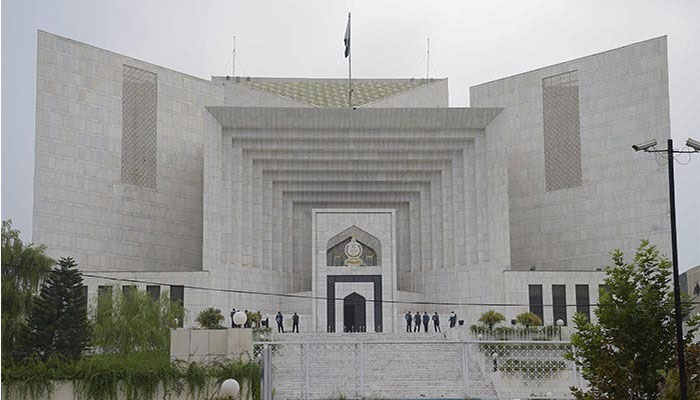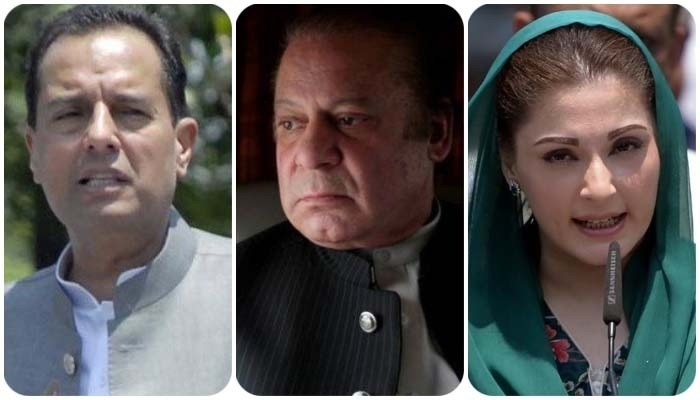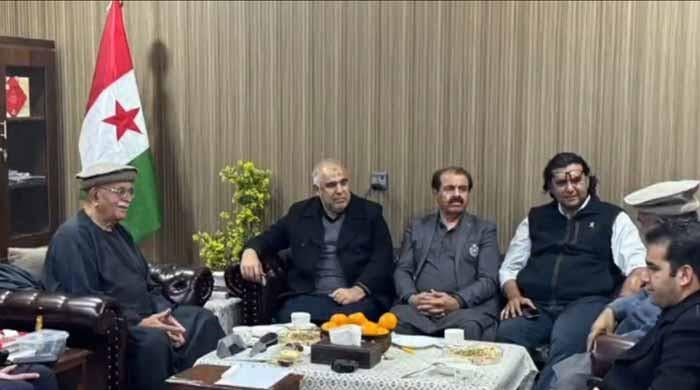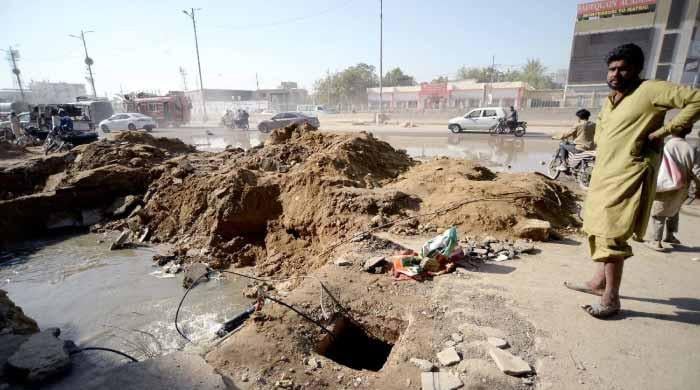Accountability court gets six weeks to conclude Nawaz, Dar's corruption cases
Accountability Court Judge Muhammad Bashir had requested extension in concluding corruption references against the former premier and finance minister as the latest deadline ended today
July 10, 2018

ISLAMABAD: The Supreme Court ordered on Tuesday a six-week extension for Accountability Court-I Judge Mohammad Bashir to conclude the corruption references against deposed prime minister Nawaz Sharif and former finance minister Ishaq Dar.
This is the fourth time the deadline for the high-profile cases has been extended since the trial started in September last year.
The Supreme Court had originally set a deadline of six months to conclude the cases but it was extended thrice, with the new date falling on July 10.
On Monday, the accountability court had requested the apex court for an extension in the deadline.
As a two-member bench headed by Chief Justice of Pakistan Justice Saqib Nisar and comprising Justice Ijazul Ahsan took up the plea, Nawaz's counsel Khawaja Haris contended that the witnesses and evidence are similar in all three references against his client; thus a different judge should hear the remaining two references after giving his verdict in the Avenfield properties case.
Haris argued that the Avenfield judgment will have an impact on the other references, However, the chief justice disagreed, observing that the cases will proceed on merit and the court will write in its order that the trial will not be prejudiced.
The chief justice remarked that Haris' request will not be entertained while Justice Ahsan observed that the references are not similar.
Justice Ahsan also wondered how a judge who recorded statements of all the witnesses can be changed at this stage.
Haris, however, argued that the trial court judge should hear his plea instead to which the chief justice agreed.
During the proceedings, the bench observed it is sure Haris will conclude the proceedings on time. "Will your relation with me improve now," the chief justice quipped, addressing Haris. He added that NAB had asked for four weeks but the court is giving him six weeks instead.
Chief Justice Nisar lamented that Haris mentions 'unfairness' repeatedly, asserting that the Supreme Court cannot even think of being unfair.
"Are you aware of all the work the Supreme Court is doing [for the country's benefit]," the chief justice asked.
The court then gave the trial court six weeks to conclude the cases and observed that the deadline may be extended if the references are not concluded on time.
The National Accountability Bureau (NAB) had filed three references against the Sharif family last year after the Panama Papers case verdict against Nawaz.
Last week, the accountability court sentenced Nawaz, daughter Maryam and son-in-law Capt (retd) Safdar to jail in the Avenfield properties reference.
After the court's verdict, the remaining cases pertain to the Al-Azizia Steel Mills and Hill Metal Establishment, and offshore companies including Flagship Investment Limited.
Nawaz's counsel seeks change of judge
During the hearing of the Al Azizia reference on Monday, Haris, Nawaz’s counsel, had objected to the judge’s hearing of the remaining two references after having given his verdict in one reference.
Haris argued that the judge cannot hear these cases as they contain a similar set of evidence and the judge has made his opinion clear on the matter after the Avenfield verdict. He further asked the judge to mention his objections in the letter to the apex court.
Haris contended that the proceedings should be taken forward once directions from the Supreme Court have been received in this regard.
"We wanted all the references to be decided simultaneously," Nawaz's counsel remarked further.
The judge then adjourned the hearing until July 12.
Nawaz and his sons, Hussain and Hasan, are accused in all three references whereas Maryam and Safdar were accused in the Avenfield reference only.
The two brothers, based abroad, have been absconding since the proceedings began last year and were declared proclaimed offenders by the court.











